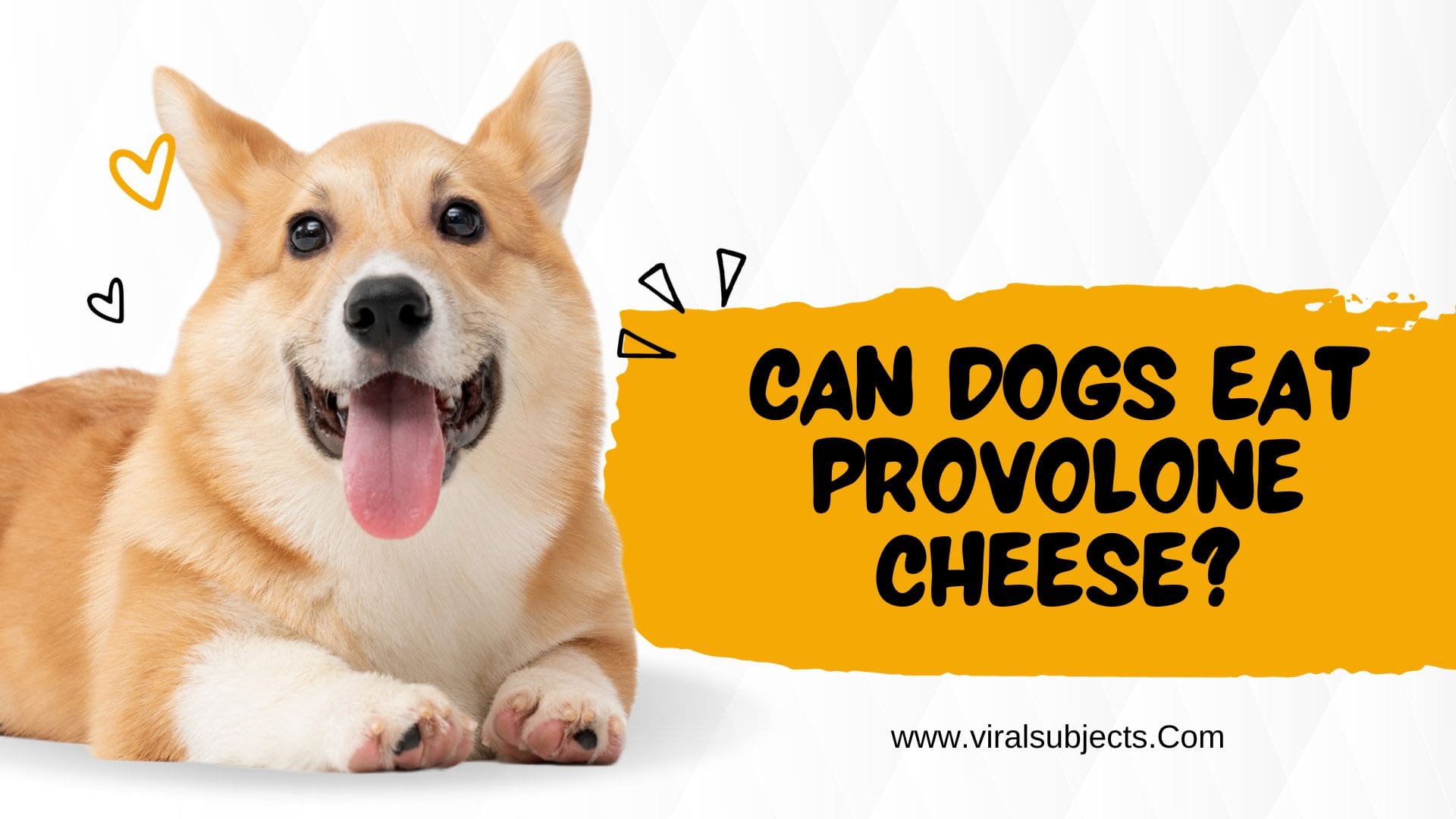Dogs have a tendency for being curious eaters, and they frequently gaze longingly at the food that their human friends are consuming. This inquisitiveness may cause dog owners to question if Can Dogs Eat Provolone Cheese? Provolone cheese is one type of cheese that frequently catches people’s attention. Can Provolone cheese be consumed by dogs without having a negative impact on their health? We will examine the subject in this post and provide you the knowledge you require to decide wisely.
Can Dogs Eat Provolone Cheese?
Can Dogs Eat Provolone Cheese ? As long as they eat the simple kind, dogs can safely eat provolone cheese. Dogs shouldn’t share other varieties of provolone cheese with extra components like garlic, onions, or avocados since they can get poisoned.
Before feeding your dog Provolone cheese Read this
The Basics of Provolone Cheese
Made from cow’s milk, provolone cheese is a semi-hard Italian cheese. It has a unique flavour that, depending on how long it is aged, can be either mild or sharp. Provolone cheese is a common ingredient in many kitchens because it’s used in sandwiches, pizzas, and pasta meals. Nonetheless, there are a few crucial things to take into account before giving your dog Provolone cheese.
The Risks of Feeding Provolone Cheese to Dogs.
- Lactose intolerance: Lactose is a form of sugar that is present in milk, just like in all dairy products, including provolone cheese. Many dogs develop lactose intolerance, which means they do not have the enzyme lactase to effectively digest lactose. This condition is more common in older dogs. Giving cheese—including Provolone—to a dog that is lactose intolerant can cause gastrointestinal issues like flatulence, diarrhoea, and upset stomach.
- High Fat Content: Dogs may have issues with provolone cheese due to its comparatively high fat content. Consuming too much fat can result in pancreatitis, a painful and sometimes fatal illness, and obesity.
- Salt Content: Provolone cheese has a high salt content as well. Dogs that consume excessive amounts of salt may develop sodium ion poisoning, which can result in symptoms such as excessive thirst and urination, as well as more serious problems.
- Additives: Certain types of Provolone cheese could have other substances, like as herbs or spices, which could be dangerous or trigger allergies in canines.
Feeding Provolone Cheese in Moderation
Moderation is key when giving your dog treats, such as a small piece of Provolone cheese every now and then. Keep the serving to a little slice or fragment.
Keep an Eye Out for Allergies: After giving your dog cheese, always keep an eye out for any indications of allergies or stomach problems. You should stop the practice right away if you experience any negative side effects.
Select Low-Lactose Options: If your dog is a cheese lover and appears to handle it well, you might want to look into low-lactose cheese options. These are often easier on a dog’s stomach and contain less lactose.
See Your Vet: It’s important to get advice from your veterinarian before adding any new food to your dog’s diet, particularly if they have dietary sensitivities or underlying medical conditions.
Although some dogs might be able to tolerate tiny amounts of Provolone cheese without any problems, it’s vital to exercise caution and be aware of any possible concerns. Since they contain salt, fat, and lactose, it’s advisable to look into other dog-friendly snacks whenever you can. To protect your dog’s health and wellbeing, always ask your veterinarian if you’re unsure about what is safe for them to eat. Keep in mind that giving your four-legged friend’s health and safety top priority when it comes to their diet is the finest way to demonstrate your love for them.
